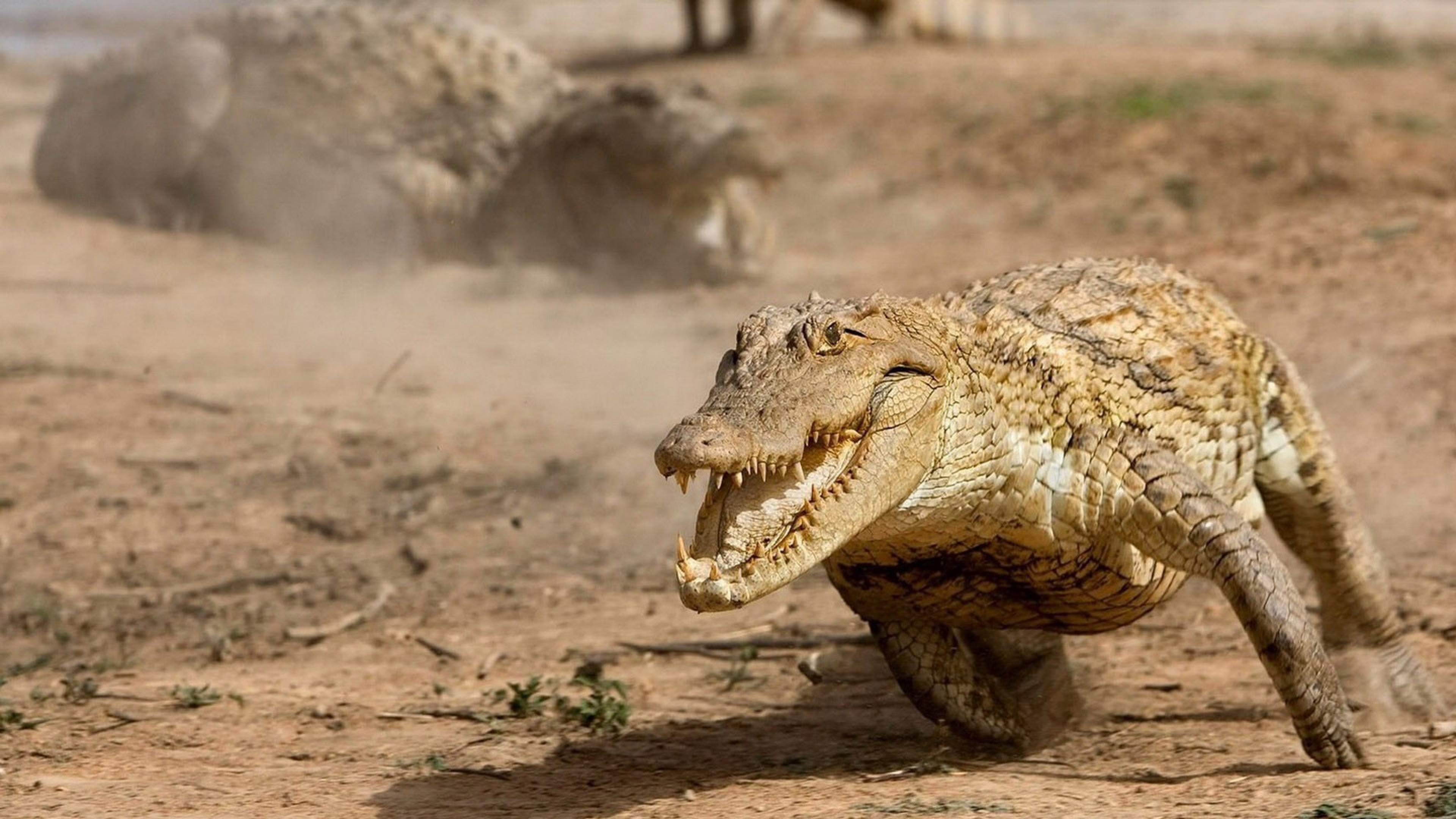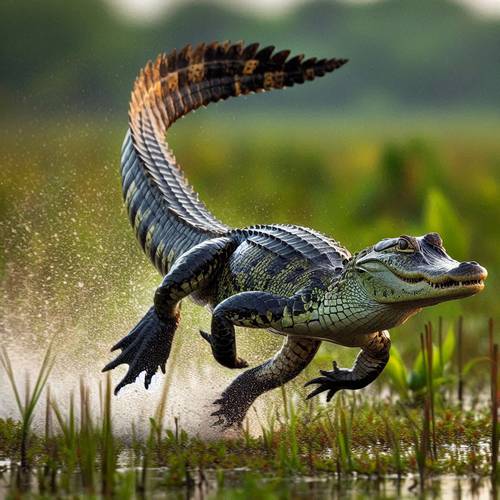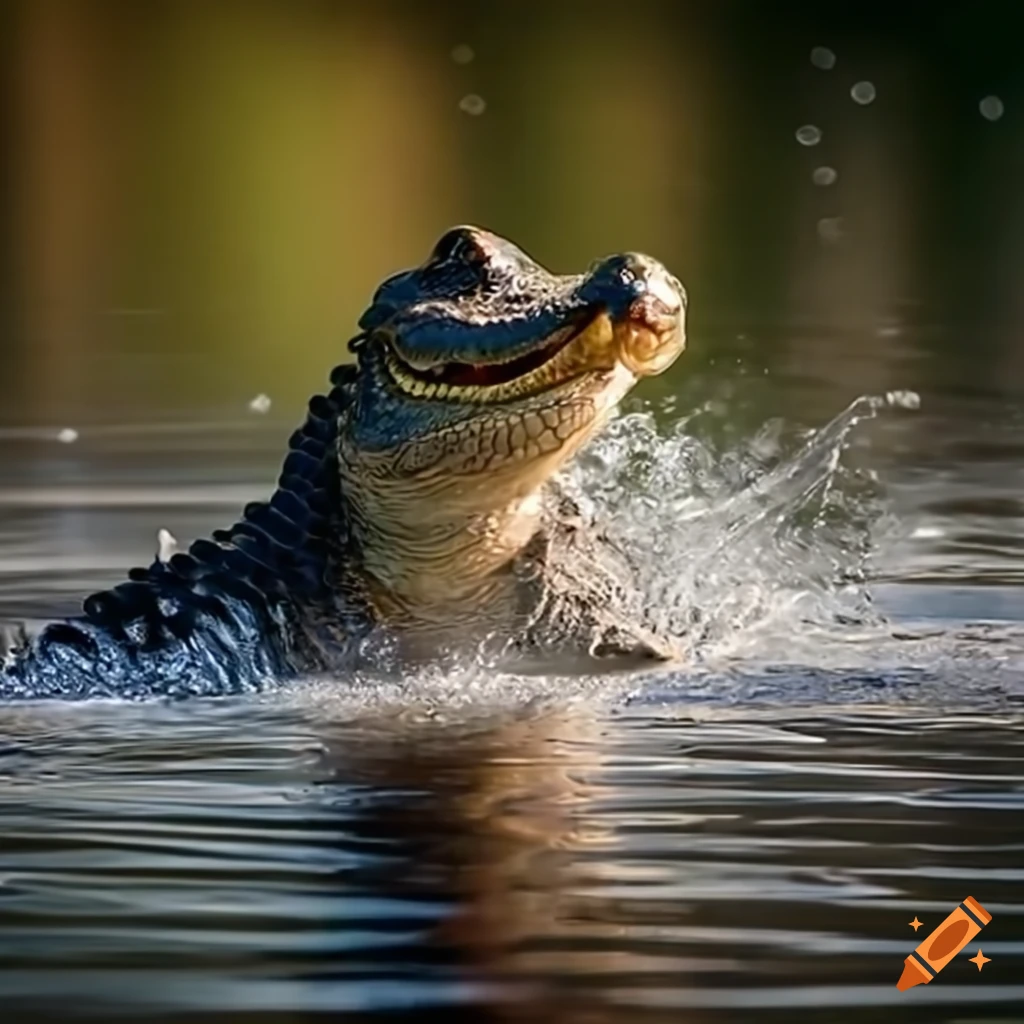Alligator Speed: How Fast Can They REALLY Run?
How fast can an alligator really run? Contrary to popular belief, these ancient reptiles can achieve surprising speeds on land, but there's more to the story than just raw velocity.
The image of a lumbering alligator, more suited to a swampy environment than a foot race, is a common one. However, the reality is somewhat different. These creatures, despite their bulky appearance, are capable of impressive bursts of speed. While they might not be Olympic sprinters, alligators can cover ground surprisingly quickly when the need arises.
| Attribute | Details |
|---|---|
| Maximum Land Speed | Up to 11 mph (17 km/h) in short bursts. Some estimates suggest speeds up to 35 mph for extremely short distances. |
| Typical Land Speed | Around 2 to 3 mph (3 to 5 km/h). |
| Swimming Speed | Approximately 20 mph (32 km/h). |
| Endurance | Limited. Alligators cannot sustain high speeds for long distances due to anaerobic muscle activity. |
| Running Style | Often a zigzag motion, which is energy-inefficient. |
| Primary Reason for Running | To hunt prey or escape danger. |
| Human Interaction | Alligators generally avoid humans. Attacks are infrequent. |
For those who find themselves in the vicinity of an alligator, understanding its capabilities is crucial. The advice often given is to run in a straight line, and this is sound advice. Alligators, while capable of bursts of speed, are not built for endurance. Their muscle activity is primarily anaerobic, meaning they fatigue quickly. A straight-line sprint maximizes your chances of escape.
The perception of the alligator as a slow-moving creature is not entirely inaccurate. They are most at home in the water, where their streamlined bodies and powerful tails propel them through the depths with impressive efficiency. On land, however, their gait is often less graceful. The distinctive zigzag run observed in some alligators is a consequence of how they use their limbs for propulsion, which is a less efficient method and consumes a lot of energy. This inefficient method, coupled with their weight, leads to rapid fatigue.
The factors influencing an alligator's speed are multifaceted. Size plays a significant role; larger alligators, with their greater mass, tend to be slower than their smaller counterparts. The terrain also has a substantial impact. Smooth, clear ground offers a more advantageous running surface than rough, uneven terrain, which can hinder their movement. When an alligator is in a state of chase, it is important to remember that the chances of being chased by an alligator is statistically low.
Consider the data: Alligators are more likely to be found along shorelines, which is where most attacks occur. They are most likely to retreat than engage in an attack. However, if you do have an alligator moving toward you, the best course of action is to immediately turn around and run as fast as you can away from it. While they can run in short bursts, they typically don't run for long distances.
The notion that alligators are relentless pursuers is largely a myth. They are opportunistic hunters, and they will often abandon the chase if their initial burst of speed fails to yield a result. Moreover, they have a natural fear of humans, which is why attacks are relatively rare. They typically prefer to avoid confrontation.
The question of how fast an alligator can run often arises in discussions about safety in alligator habitats. The answer, as we have seen, is nuanced. While their top speeds are impressive, their endurance is limited. This knowledge is essential for anyone who spends time in areas where these reptiles live, so that they may take appropriate precautions.
Therefore, although an alligator might reach high speeds in short bursts, it is unlikely to chase anyone long enough to cause significant harm. By knowing these facts, people can feel confident in these areas, and will not be panicked should a situation arise.
If an alligator is chasing you, run as quickly as you can in a straight linedont zigzag, as this wont help and can slow you down. If the alligator bites you, the best thing to do is to fight back and make a lot of noise. However, since alligators are not particularly interested in pursuing humans, attacks are quite infrequent. Therefore, if you encounter an alligator, remain calm and follow the advice provided.
The distinction between speed and endurance is key. Alligators are not built for long-distance running. Their impressive short-burst speed serves a very specific purpose: to ambush prey or escape danger. This is not the profile of an animal that actively pursues humans over extended distances. Running away from an alligator is not recommended as they can run up to 20 miles per hour for short distances. In order to be safe, it is recommended to back away slowly while keeping a watchful eye on the alligator, and to run in a straight line if necessary. If an alligator attacks, it is recommended to fight back with any available objects such as sticks, rocks, or even fists.
In the rare event of an attack, fighting back is the recommended course of action. Alligators, like any animal, will react to threats. Making noise and using any available objects to defend yourself can increase your chances of survival. The same goes for all states, including south carolina, andmore rarelylouisiana, texas, and georgia, occasionally see attacks as well. The odds of being attacked by an alligator is unlikely, as are the odds of being struck by lightning or dying from a bee sting.
In conclusion, while alligators can move with surprising speed on land, their limitations are equally important to understand. By acknowledging both their strengths and weaknesses, individuals can navigate alligator habitats with greater confidence and safety. Remember: respect their space, be aware of your surroundings, and know what to do in the unlikely event of an encounter.
The information provided in this article is for general informational purposes only. It is not intended to be a substitute for professional advice. Always consult with relevant experts for guidance on specific safety concerns.


